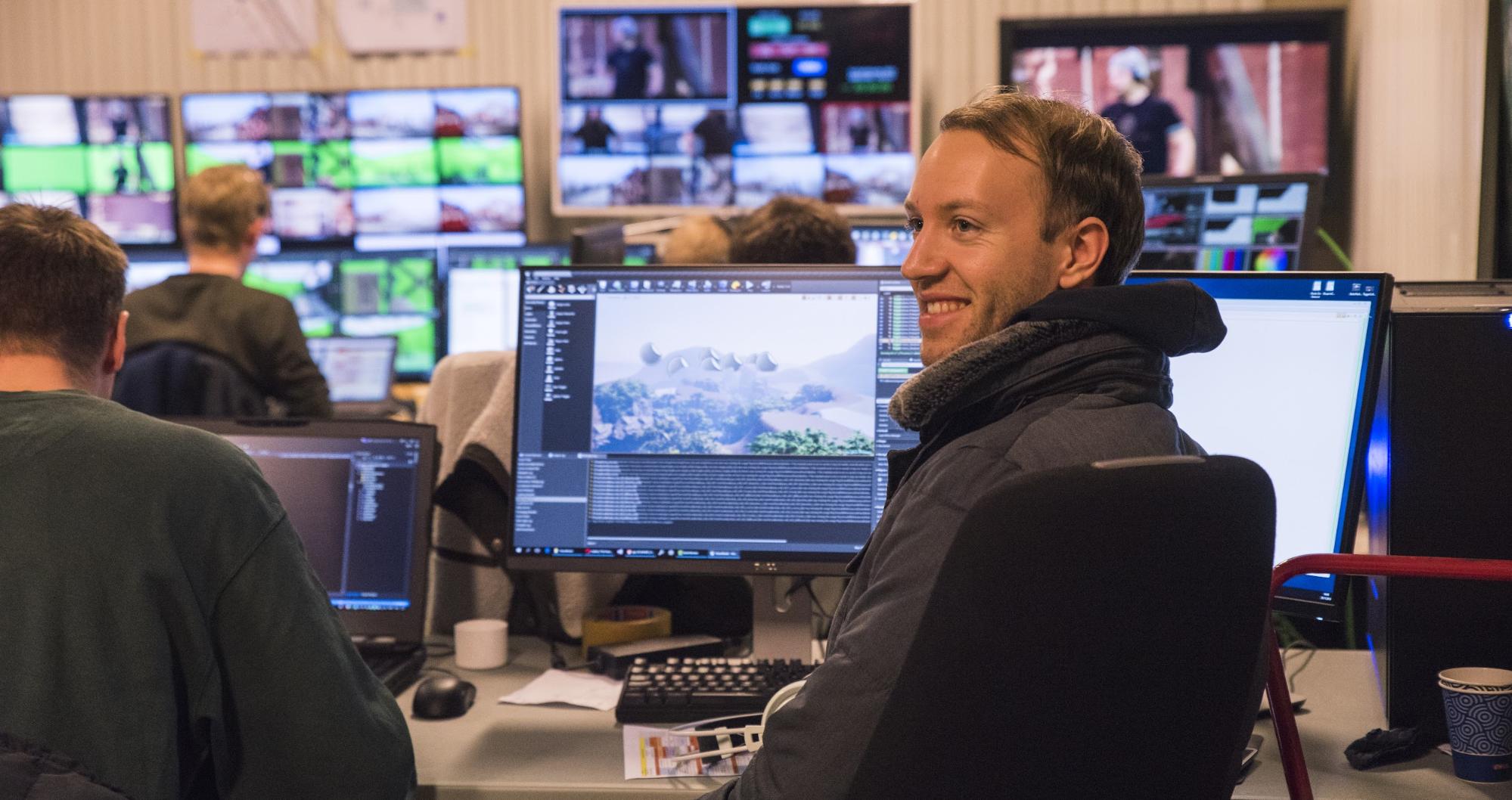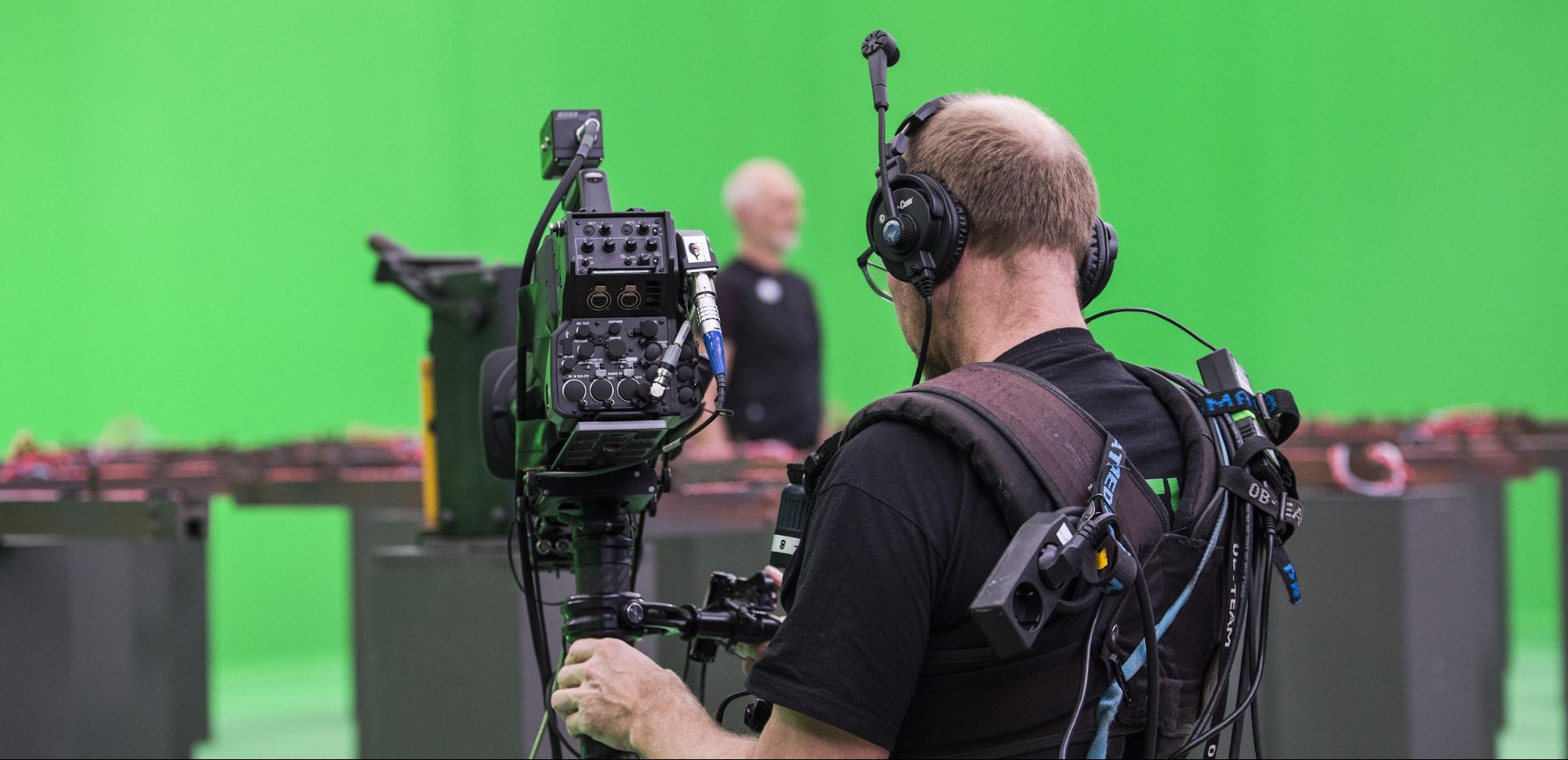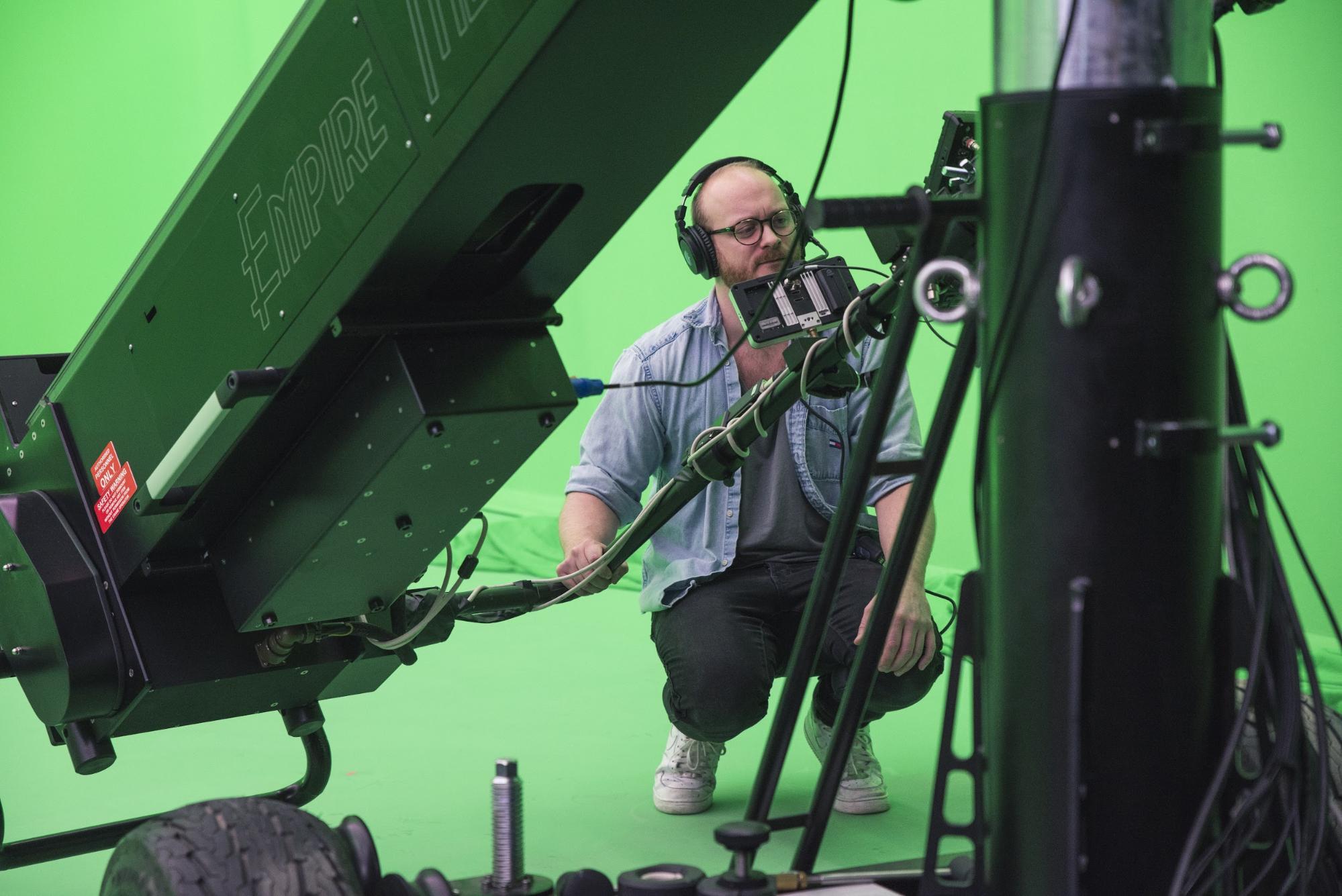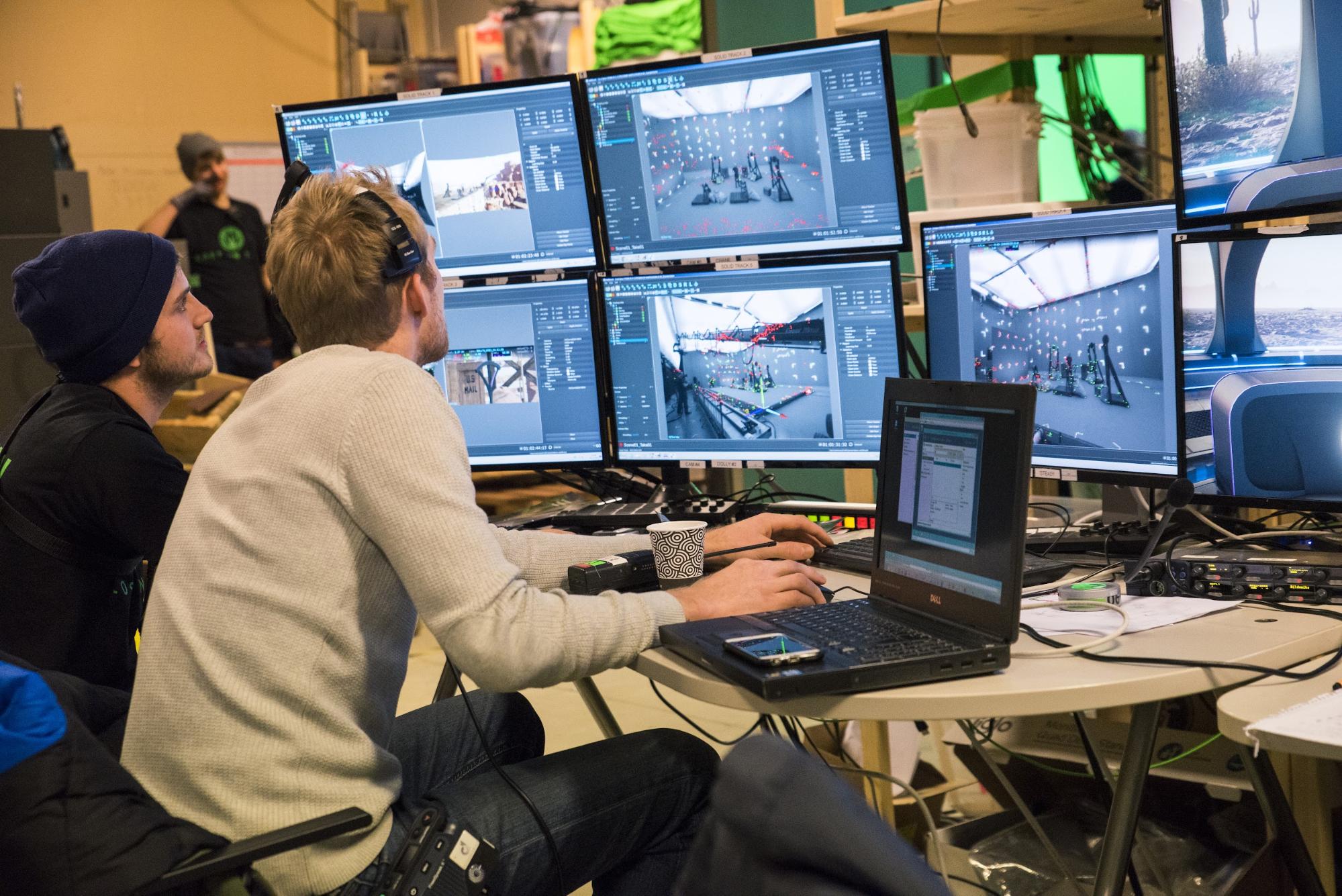Column: New roles in virtual production and how to get them

Subscribe to NCS for the latest news, project case studies and product announcements in broadcast technology, creative design and engineering delivered to your inbox.
From the types of jobs on offer, to what skills and experience you need to join them, here’s your essential primer in joining the rapidly evolving virtual production industry.
Virtual production (VP) is rapidly becoming a popular approach across film and TV, live events, and immersive media experiences. Not only are there practical benefits – saving both time and cost when compared to expensive location shoots – but it also opens up a whole new world of creative possibilities for any kind of media production.
With the industry rapidly evolving, roles in VP are becoming increasingly in demand, opening up a range of opportunities for both newcomers and established industry professionals. In this article, we’re sharing some examples of key roles in VP and discussing tips on breaking into the industry as a newcomer.

How to get a job in virtual production
With these new roles constantly evolving, it’s clear that there is plenty of opportunity to get involved with the ever-expanding virtual production world. But how do you actually get started with a career in virtual production?
As with any industry, networking is a good place to start. However, it’s also a good idea to familiarize yourself with the virtual production pipeline. Having an understanding of each element of the production, even those you’re not directly involved with – such as video I/O, real-time animation, technical support, and stage skills – will give you an advantage in creating a seamless workflow. And if you work on the creative side, then a showreel is essential for showcasing your work.
Teamwork and communication are particularly important and often undervalued skills for the virtual production environment, says Erik Beaumont, head of mixed reality (MR) at The Famous Group (TFG), a production company specializing in virtual and augmented reality for sports and live events.

Erik also highlights the advantage of having a traditional production background. “Production timelines and deadlines are stacked slightly differently. We emphasize different things like how the dailies work and cutoff dates for approvals, but if you have the basic toolset, you’ll adjust fairly seamlessly,” says Erik.
He also advises that knowing your way around a real-time engine will put you in a good position, and that this is not as hard as it sounds. “Pick a game engine of choice and just do something in it. People imagine a high threshold of how complicated it is, but the reality is different,” says Erik.
Spanish 3D artist Fernando Trueba Llano, a technical artist at Televisión Canaria, agrees that real-time engines are a good starting point for those who want to get into virtual production but don’t know where to start.
“My recommendation would be to start studying the basics of 3D and focus on Unreal Engine,” says Fernando. “Dedicate personal time to dig in and learn as much as possible. […] And finally, put into practice what you have learned and create demos of your capabilities with the engine.”

New roles in virtual production
If you’re interested in gaining new skills in VP from a traditional production background, or if you’d like to transfer your experience in gaming, VFX, or real-time engines, here’s a taster of some of the new jobs and skills currently needed in the ever-evolving virtual production industry.
Virtual Production Supervisor
The Virtual Production Supervisor is a leadership role, taking charge of the entire virtual production set. People in this role can expect to act as a bridge between different sections of the crew. This requires strong people skills – and you’ll also need an excellent understanding of the tech involved. This is an ideal role for producers, or those with a background in VFX, such as a VFX supervisor.
Volume Operator
A virtual production volume – otherwise known as an XR volume or VP stage – is made up of many large LED panels that display media content. This can be anything from stills and 2D footage to real-time 3D graphics generated by a game engine.
These volumes need someone to oversee the content piped into these screens, where the Volume Operator comes in. Often working with assistants, depending on the production size, the Volume Operator is usually someone with experience in creating real-time graphics on gaming engines such as Unreal Engine or Unity.
LED Engineer
As well as having someone to operate the volume, virtual productions require someone to manage and maintain the screens themselves. LED panels are a key piece of the rig in a VP environment so it is essential to have an LED Engineer, otherwise known as an LED Technician, on-set to ensure they work correctly and consistently.
LEDs have been used across live events and broadcasts for some time, so many AV technicians will find they already have the required skills to become an LED Engineer. Other relevant skills include experience in motion capture and camera tracking systems, plus knowledge of Unreal Engine and other real-time tools.
VFX Supervisor
In the visual effects industry, VFX supervisors take charge of an entire project, managing the people, workflows, and timelines for delivery. This is not an entirely new role, but has evolved within the virtual production world.
In VP, a VFX Supervisor is responsible for all the visual effects on a real-time production. This role works across the creative side but also has a solid understanding of the technical aspects involved, especially newer innovations like real-time technology.
Motion Capture Supervisor
Another leadership role, this one focuses on motion capture. Like the VFX Supervisor, this role has existed for some time but has now expanded to incorporate the real-time environment. Again, working knowledge of motion capture and the ability to work with camera tracking systems is essential.
Virtual Camera Operator
As the name suggests, this person operates a virtual camera using an external device such as a tablet. A good understanding of cinematography is important, as well as the ability to keep up to date with all the latest equipment and software on offer. This is also an excellent role for people with experience in creating computer-generated animations using game engines.
Engine Operator
Real-time game engines, such as Unreal Engine and Unity, are becoming an increasingly essential part of the virtual production pipeline. The Engine Operator is responsible for operating the real-time engine being used in the production.
Subscribe to NCS for the latest news, project case studies and product announcements in broadcast technology, creative design and engineering delivered to your inbox.





tags
employment opportunity, jobs, motion graphic jobs, Pixotope, Professional Development & Training, The Famous Group, Virtual Production
categories
Broadcast Automation, Broadcast Engineering, Featured, IP Based Production, Jobs, Voices